When I was asked to write on reconciliation, I didn’t know where to start. To be honest, I knew the definition of the word, but couldn’t place it in my life. Reconciliation Canada is promoting its events beyond Aboriginal peoples to all Canadians—although initially conceived as a source of healing from the legacy of Indian residential schools. But as a non-Aboriginal, could I identity with this? Is reconciliation strong enough a concept to fulfill its intended outcome? Moreover, could it extend beyond its desired context and still hold meaning in our daily lives?

This got me thinking about the word itself. And if taken outside the parameters of truth and reconciliation, what it meant to all Canadians. So here is my attempt to illustrate its multi-layers; that our cultural and personal histories paint how we see the world and how we wish to change it.
On September 22, Reconciliation Canada is encouraging all Canadians to walk for peace, unity and a positive future—whatever this may mean to you. Join the conversation and be heard at https://www.facebook.com/ReconciliationCanada.
For more info on the Walk for Reconciliation, visit: http://reconciliationcanada.ca/participate/walk-for-reconciliation/.
PS: My first attempt was to define reconciliation as “accepting things as they are, forgiving and moving towards a better future.” I later changed it to “everything.” Goes to show I might need a little reconciliation of my own. Hope to see you all at the Walk!
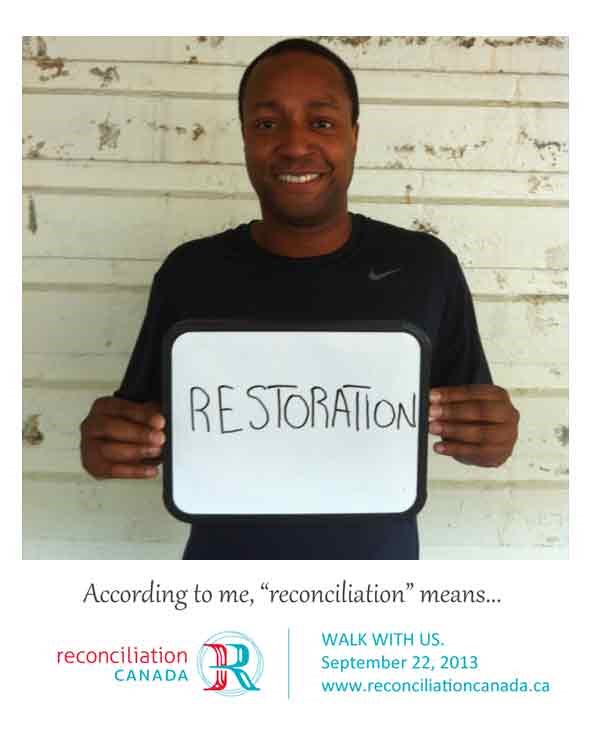
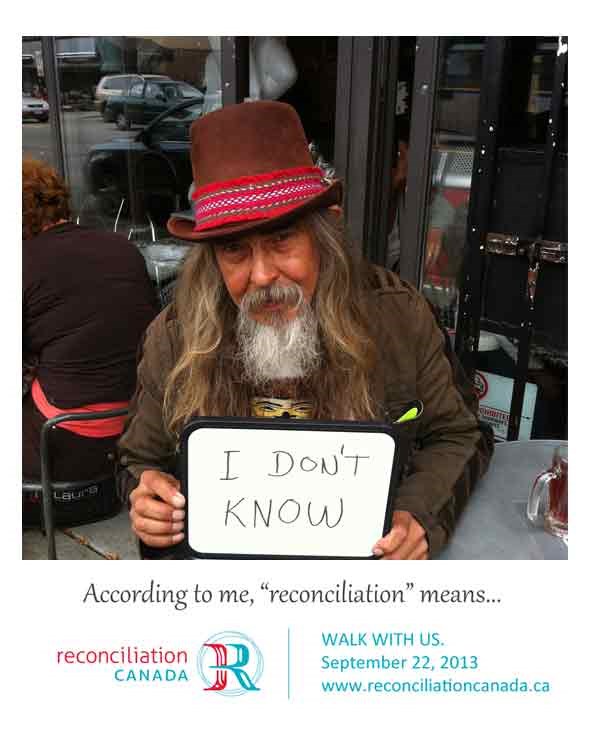
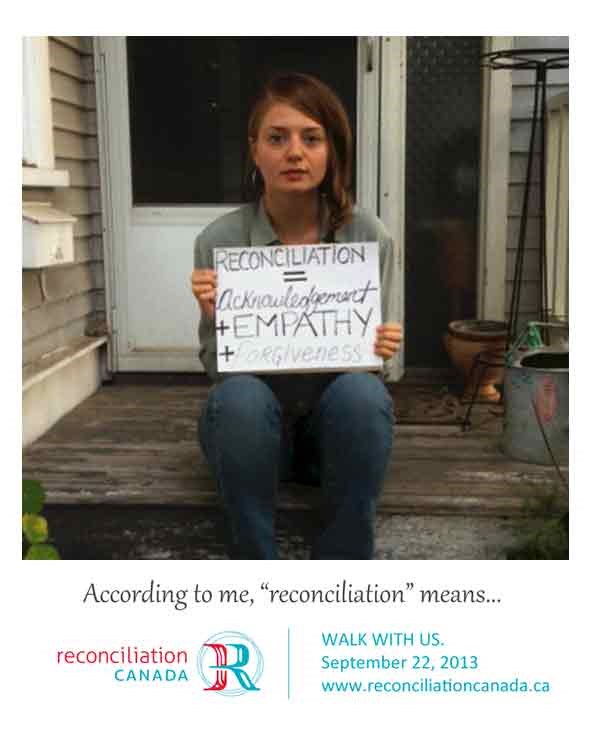
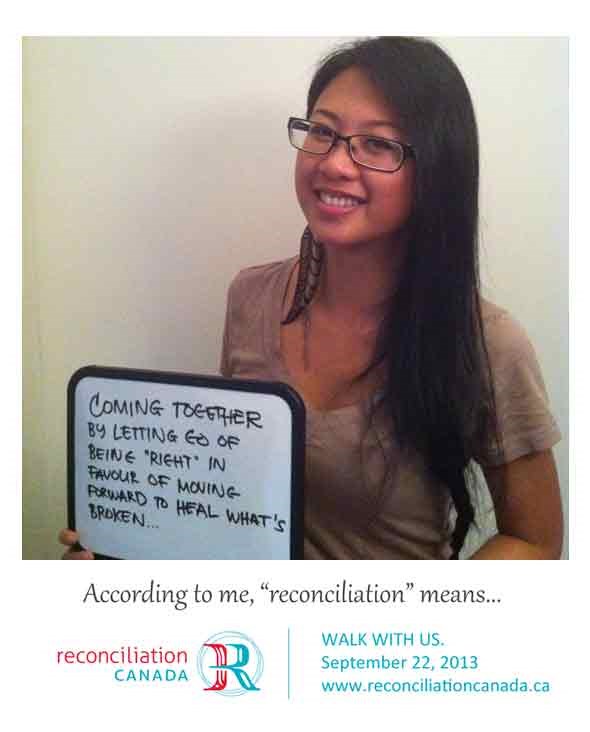
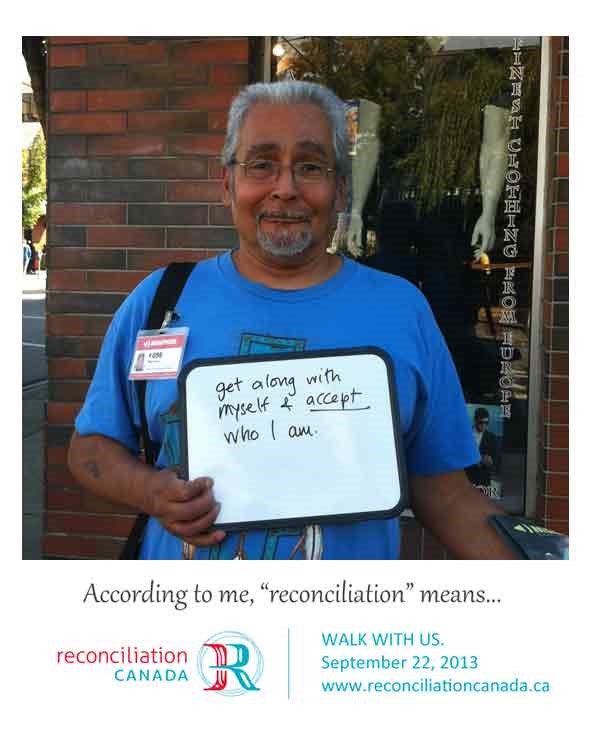
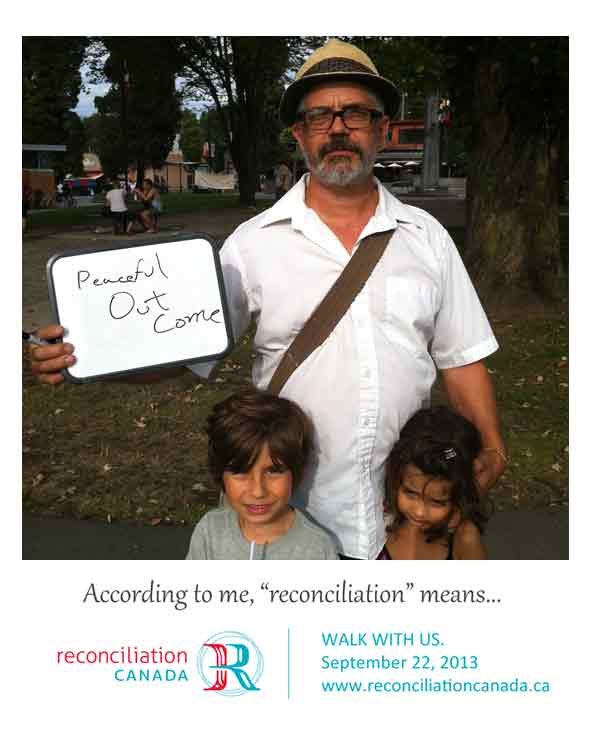
For more photos on reconciliation, go to https://www.facebook.com/ReconciliationCanada.


